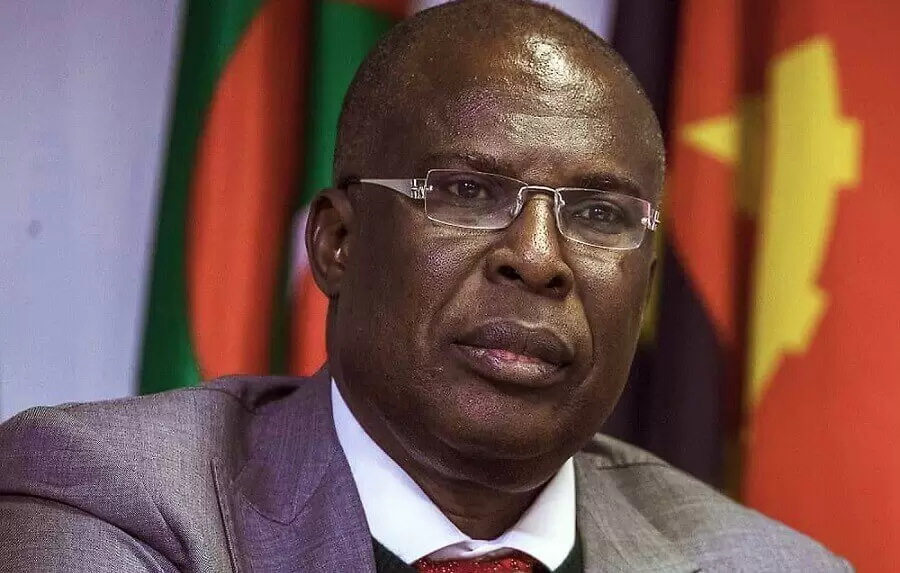Crude Oil Theft: Senate Committee Uncovers How Sylva Undermined PIA Provisions To Cause Regulatory Friction Between NUPRC, NMDPRA
… Directs NUPRC To Resume Full Regulatory Oversight Of All Crude Oil Terminals In Nigeria
Facts have emerged as to how the Minister of State for Petroleum Resources, Timipre Sylva undermined key provisions of the Petroleum Industry Act through two letters written to the regulatory agencies in the oil and gas sector
Advertisement
The letter, according to a Report submitted by an Ad-Hoc Committee to investigate oil lifting, theft and the impact on petroleum production and oil revenues led to serious friction between the two key government agencies saddled with the responsibilities of regulatory the oil and gas industry.
The two agencies are the Nigerian Midstream and Downstream Petroleum Regulatory Authority (NMDPRA) saddled with the responsibility of regulating the midstream/downstream sector and the Nigerian Upstream Petroleum Regulatory Commission for the upstream sector of the oil and gas industry.
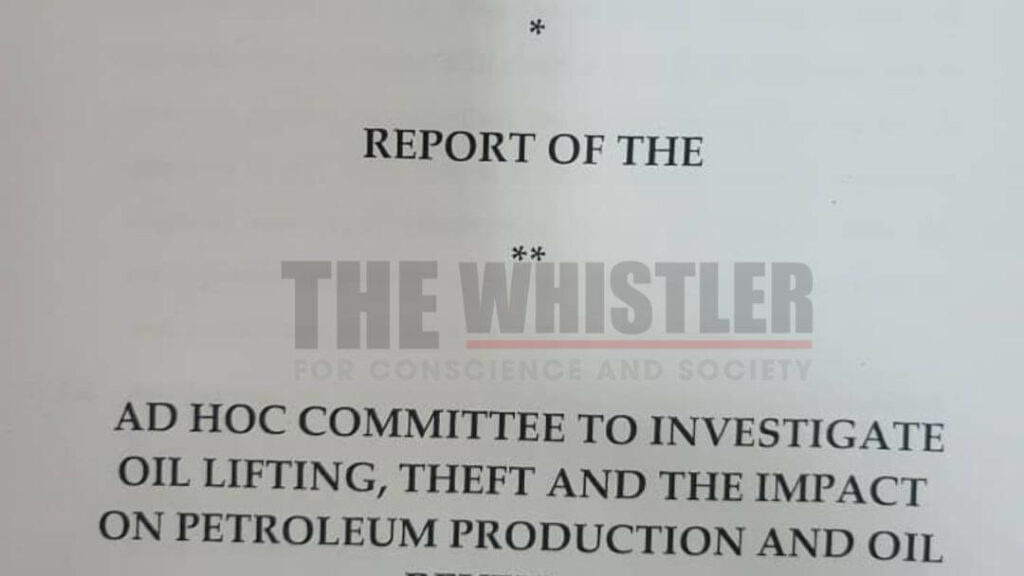
President of the Senate, Ahmed Lawan had in April this year constituted the committee chaired by Senator Albert B. Akpan.
Advertisement
Members of the Committee include Senator Yusuf A. Yusuf, Senator Solomon O. Adeola, Senator Kabiru I. Gaya, Senator Mohammed A. Adamu, Senator George T. Sekibo, Senator Gabriel T. Suswam, Senator Kashim Shettima, Senator Aliyu S. Abdullahi, Senator Mohammed A. Ndume, Senator Stella A. Oduah, Senator Mohammed S. Musa, and Senator Ibrahim A. Gobir.
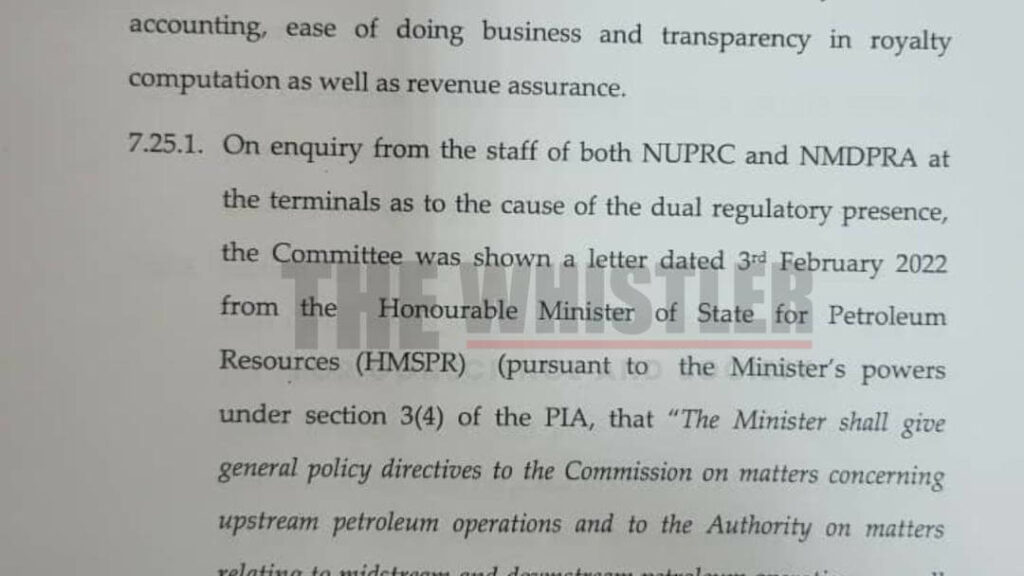
The Committee in its report which was obtained by THE WHISTLER on Saturday said one of its key observations during the site visits to the terminals was the discovery of dual and conflicting regulatory presence of both the NUPRC and the NMDPRA.
The conflicting regulatory presence was discovered in one of the floating and offloading terminals in the Ebok field operated by Oriental Energy Resources, offshore Akwa Ibom State, which is outrightly against the spirit and letters of the Petroleum Industry Act, 2021 (PIA).
The PIA vests the regulatory oversight over all upstream operations and activities (including crude oil terminals whether integrated or otherwise), on the NUPRC.
Advertisement
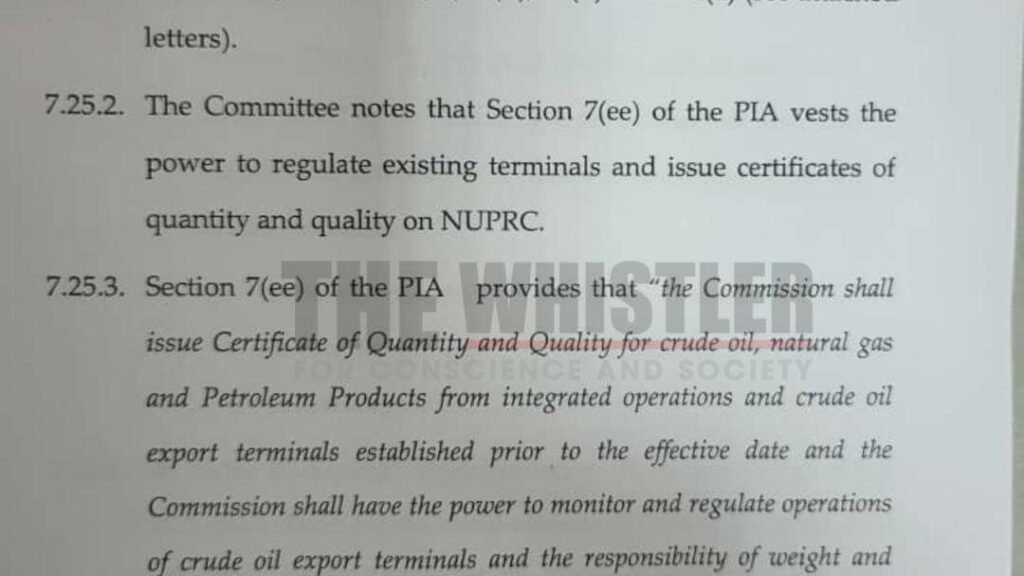
But the Committee, in its report discovered that this dual regulatory oversight has become a source of conflict and crises among members of staff of the two affected agencies.
The development had led to several complaints by oil and gas producers on the terminals; and also had a negative impact on the ease of doing business by the industry operators at the terminals.
While the PIA distinctively created two regulatory agencies for the oil and gas industry, it gave NUPRC the powers to regulate the upstream sector and the NMDPRA for the midstream and downstream sector.
The NMDPRA was conferred with the mandate to regulate future stand-alone export terminals, since the Act had envisaged the future development of stand-alone terminals for export of refined products for non-holders of Petroleum Mining Lease or Oil Mining Lease, which hitherto was not available under the Terminal Dues Act, which prescribes the legal basis for establishing crude export terminals only for holders of Oil Mining Lease or Oil Prospecting License.
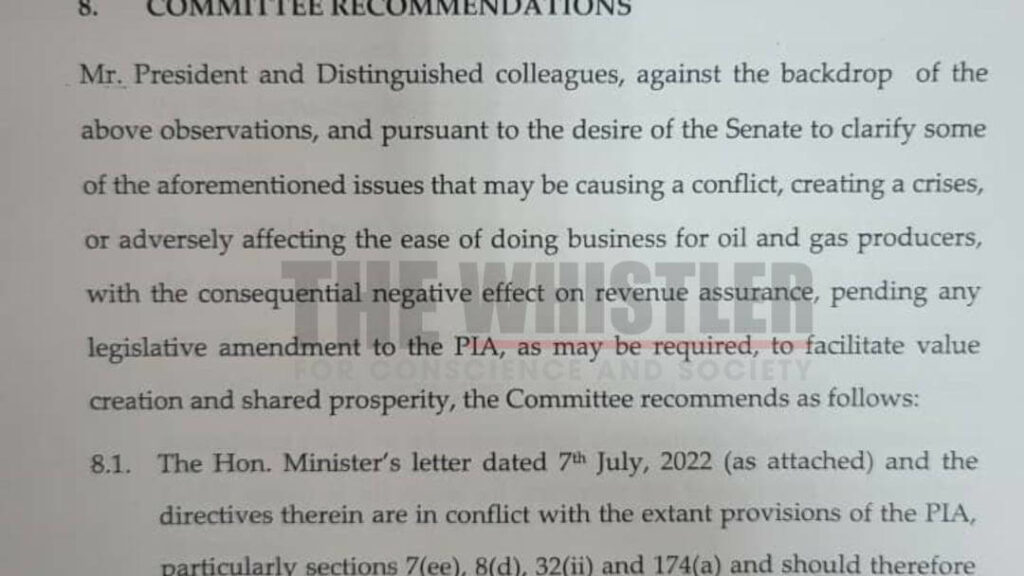
Advertisement
The implication of this is that the Authority had no mandate whatsoever to regulate crude oil export terminals given that its mandate is strictly in respect of midstream and downstream terminals.
The Committee also found and frowned at the interference of the Federal Ministry of Transport in the deployment of the Advance Crude Cargo Declaration solution which should the responsibility of the NUPRC, in alignment with its mandate as the technical and commercial upstream regulator under the PIA.
The Report stated, “The Committee also frowned at the presence of two regulators at the crude oil export terminals when the PIA has clearly designated the limits of the two petroleum regulators’ respective oversight. Nigerian Midstream and Downstream Petroleum Regulator Authority (NMDPRA) regulates the midstream/downstream sector only and at no time did the PIA contemplate it to perform crude oil terminal activities regulation, which is an upstream regulatory function and should necessarily include hydrocarbon accounting and crude oil revenue assurance and consolidation, as these are interdependent and contingent on crude oil terminal regulation.
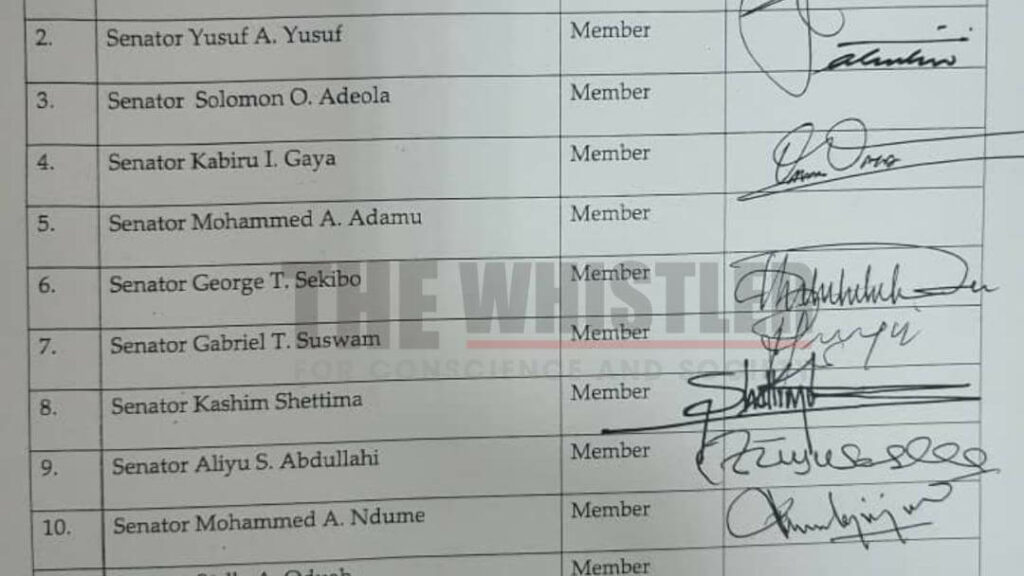
“Crude oil being a product of upstream, in line with its definition under section 318 of the PIA, its Terminals can only be under the regulation of the Upstream Commission for optimal hydrocarbon accounting, ease of doing business and transparency in royalty computation as well as revenue assurance.”
The Report noted that during the investigation, on enquiry from members of staff of both NUPRC and NMDPRA at the terminals as to the cause of the dual regulatory presence, the Committee was shown a letter dated 3. February 2022 from the Minister of State for Petroleum Resources, Timipre Sylva (pursuant to the Minister’s powers under section 3(4) of the PIA.
The letter states, “The Minister shall give general policy directives to the Commission on matters concerning upstream petroleum operations and to the Authority on matters relating to midstream and downstream petroleum operations as well as mutters related to cooperation among the two entities in line with the provisions of this Act and the Commission and the Authority shall comply with such directives…”).
This letter by the Minister has also delineated the scope of regulatory authority of NUPRC and NMDPRA over terminals operations in line with the provisions of the PIA.
The Committee was also shown a second letter by Sylva dated 7 July 2022 which strangely somersaulted and issued a counter directive on the same delineation of the scope of regulatory authority of NUPRC and NMDPRA over terminals operations in conflict with extant provisions of the PIA, particularly sections 7(e), 8(d), 32(ii) and 174(a).
The Report added, “The Committee notes that Section 7(e) of the PIA vests the power to regulate existing terminals and issue certificates of quantity and quality on NUPRC.
“Section 7(e) of the PIA provides that ‘the Commission shall issue Certificate of Quantity and Quality for crude oil, natural gas and Petroleum Products from integrated operations and crude oil export terminals established prior to the effective date and the Commission shall have the power to monitor and regulate operations of crude oil export terminals and the responsibility of weight and measures at crude oil export terminals shall cease to exist frets the effective date.’
“Section 8(d) of the PIA provides that ‘Where in-situ facilities or fixed or floating platforms provide for fully integrated upstream and midstream petroleum operations, the Commission shall be in charge of such integrated operations and petroleum operations shall be considered integrated where there is joint use of utilities used exclusively for the Upstream and midstream operations.”
Conversely, sections 174(a) and 32(ii) gave the Authority the power to regulate future new stand-alone export terminals and issue certificates of quantity and quality in that regard.
Section 174(a) states, “Except in accordance with an appropriate license issued by the Authority, a person shall not undertake the following activities with respect to midstream petroleum liquids operations—establish, construct or operate a terminal or other facility for the ex-port or importation of crude oil or petroleum products;….”
In order to support implementation of section 174(a) of the PIA cited above for the stand-alone terminals to be established after the effective date of the commencement of the PIA, Section 32 (ii) states that “The functions of the Authority shall be to – (ii) issue certificates of quality and quantity to exporters of crude oil, LNG and petroleum products”
To stop the regulatory conflict, the Committee recommended that, “The letter of 7 July 2022 should therefore be jettisoned as the PIA takes precedence over administrative directives, especially since there exists no ambiguity regarding the oversight responsibilities of the two regulators of the oil and gas sector regarding terminal operations regulatory oversight.
“The Hon. Minister’s letter dated 7. July, 2022 and the directives therein are in conflict with the extant provisions of the NA, particularly sections 7(ee), 8(d), 32(ii) and 174(a) and should therefore be jettisoned as the law (PIA) takes precedence over administrative directives which are inconsistent with its provisions;
“The NUPRC should resume full regulatory oversight of all existing crude oil terminals in Nigeria including integrated terminals, crude oil pipelines, issuance of loading clearance and processing of export permit in line with section 8(d) of the PIA, as regulatory activities at crude oil terminals are interdependent and contingent.”
As intended in the PIA, the Committee in the Report also directed the NMDPRA to statutorily concentrate fully on regulating the midstream and downstream activities such as refineries, mid and downstream gas infrastructure, supply, storage and distribution of refined petroleum products, petrochemicals, virtual pipelines and retailing facilities, in line with the provisions of the PIA, including future stand-alone crude oil and natural gas export terminals;
“There should be an immediate streamlining of the agencies present at the terminals in line with the relevance of their PIA delineated upstream and midstream/downstream statutory functions while NUPRC should strengthen deployment of digital accounting procedures (such as advance cargo declaration, digital integration of LACT units) at all crude oil terminals for transparent hydrocarbon accounting.
“NUPRC should fast track the upgrade of the National Production Monitoring Systems (NPMS) to enable Real Time monitoring of Flow station and Terminal activities.
“NUPRC should expedite the deployment and strict enforcement of the Advance Crude Oil Cargo Declaration solution for detection and mitigation of illegal movement of vessels, to ensure adequate revenue generation and optimal crude oil accounting, thus enhancing revenue generation for the federation,” it added.
The Committee further recommended that NUPRC must ensure that all vessels coming into the Nigerian waters for the purpose of crude oil liftings adhere strictly with Advance Cargo Declaration (ACD) in line with international best practices in collaboration with the Nigerian Navy and other relevant statutory agencies in line with presidential approval.
It stated that the Ministry of transport should immediately withdraw its interference with Advance Cargo Declaration on wet petroleum cargoes in alignment with the statutory mandates of the NUPRC under the PIA.
“NUPRC should summarily conclude engineering audits of existing LACT Units and Flow meters for efficient regulation and monitoring for integrity assurance and standardization of crude oil measurement systems in the Nigerian upstream oil and gas operations.
“The Bureau of Public Procurement should expedite all processes of procurement for the Nigerian Upstream Petroleum Regulatory Commission (NUPRC) to ensure immediate deployment of an online real-time monitoring system by the Commission across all upstream oil and gas production platforms to ensure accurate measure of production volume by the producers,” it added.
It said curtailing crude oil theft should be a collective responsibility thereby well-meaning members of the public must be encouraged to report illegal activities and transactions in stolen crude oil that may come to their knowledge from any part of the world.
The Report added, “Nigeria should seek international financial collaboration to check illegal Letters of Credit used to fund the sale and purchase of Nigeria stolen crude, as such illegal crude sales can only be transacted through the world financial system.”


